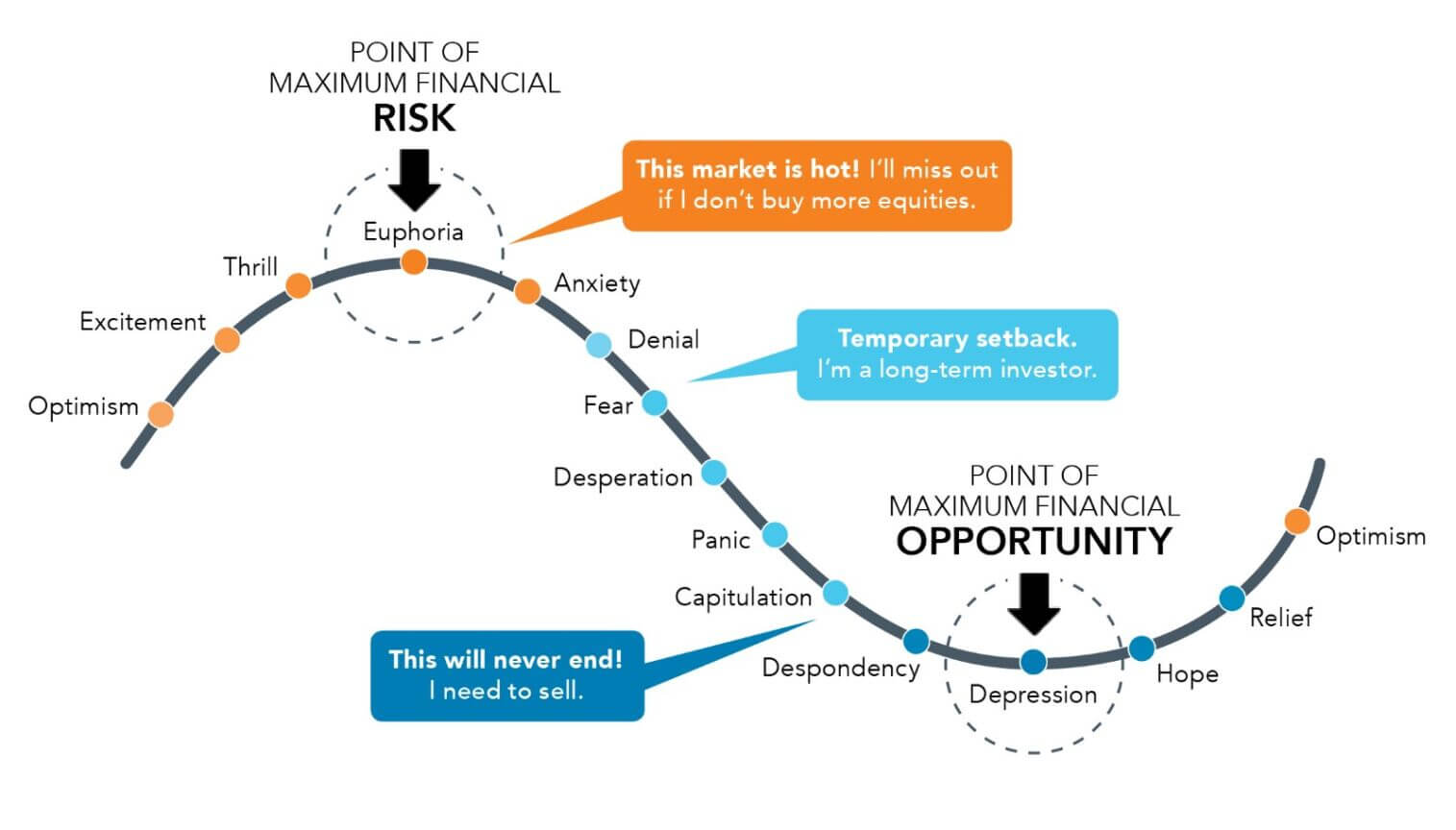Negative investment returns will be a challenge for some and an opportunity for others. In this article we try to establish the point that markets operate with buyers and sellers, each making their decisions as to what to accumulate and what to dispose of – and when to make those moves – and in those actions we see that negative returns can present buying opportunities for a number of reasons.
Why do negative returns occur?
Holding an asset that reduces loses value, whether by market action or economic circumstance that reduces the purchasing power locked up in that asset, constitutes a negative investment return event.
Some investments, like cash and term deposits with banks, never fall in dollar value. However, they can create problems for investors over the medium to long-term as they produce only modest returns with no capital growth – and they are not tax effective. The purchasing power of these investments decreases in real terms over time (that is, after taking into account the effects of inflation).
In order to achieve higher returns and better tax effectiveness, it is generally necessary to take some risk through exposure to so-called ‘growth’ assets: investments in assets such as shares in trading companies; or investment property.
The reason that these growth assets produce better returns over time is that the underlying investments are economic drivers that facilitate profit-making; and wealth accumulation. As long as the economy as a whole continues to grow, companies should increase in real value and pay increasing dividends. Of course, growth can be uncertain and uneven: in times when the growth slows or is negative, valuations fall, dividends (distributions) fall -and negative returns are experienced.
All market sectors will occasionally experience negative returns. Most will recover, but there is always the risk that some will not. When the negative returns are induced by investor sentiment, yet economic fundamentals persist, it can be said that the market is behaving irrationally. It could be that the deterioration in sentiment arises from a misunderstanding or a misinterpretation of information and investors start acting on incomplete or imperfect information.
How can I cope with negative returns?
Such events can be largely countered by diversification. The variation in returns from one year to the next is known as ‘volatility’. We would all like to receive ‘high and safe returns’ but unfortunately investment markets don’t work that way. Even government bonds rise and fall in value as interest rates change…and, generally speaking, the higher the potential return, the higher the risk.
There has been considerable research on the psychology of investing and it has shown that the joy of high returns is more than outweighed by the pain of negative returns. This helps to explain why many people panic when investment markets decline, even though they knew it would happen.
There is a natural human tendency to be worried when an investment portfolio falls in value. No one likes to lose money, particularly in retirement or where you are unable go back to work to replace lost funds.
The most important thing to remember is that you must not let your emotions get in the way of a carefully planned long-term strategy. It is often said that the sharemarket exists to transfer wealth from the impatient to the patient. Too many people go into markets for the wrong reasons – and get out of them at the wrong time.
Can negative returns be a positive?
Smart investors see downturns in markets as a positive opportunity to make more money. Because a lot of people allow their emotions to override their common sense, some great buying opportunities arise when markets fall. We all know that it is better to buy from a distressed seller than buy from one who doesn’t need to sell.
By putting in place an appropriate long-term asset allocation and reviewing it on a regular basis, you will find yourself taking profits as markets rise and buying more when markets fall. By doing this, you will certainly turn the market negatives into a big positive for your overall financial position.
Consult Continuum Financial Planners for a positive experience
If you are keen to review your investment portfolio, to efficiently diversify the risk built into it; and to find comfort in knowing that your portfolio is well structured with well-researched investment products, meet with one of our experienced advisers. To arrange a meeting, phone our office (on 07-3421 3456), or complete the contact us form on our website. We will ascertain your financial position, your goals and objectives, conduct an investor risk aversion assessment and review your portfolio – ‘we listen, we understand; and we have solutions – that we deliver in personalised, professional wealth management advice’.


